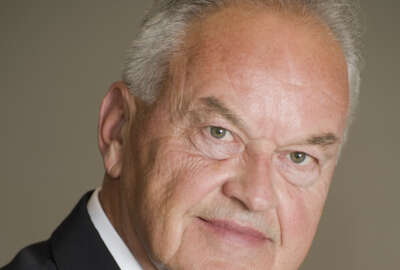According to much of the media, and many politicians, federal workers are overpaid compared to other American workers.
Often the calculations fail (probably on purpose) to take into account the fact that Uncle Sam has more people working at NASA, the Pentagon or the CIA than working in car washes, big-box stores or the fast-food business.
For the most part, the U.S. government doesn’t do retail.
Lots of people who know a lot about the American labor force know that feds rank way up there in both formal education and training. Most federal jobs are professional, administrative or IT.
Feds probably hold their own when it comes to keeping up with the news. Maybe, because of their jobs, but as much, if not more, than many of their friends and relatives in the private sector.
Knowing how things are going in Turkey (not so well) or Syria (also not so well) or Zimbabwe (ditto!) can be helpful up to a point. But if a coup in Africa or a volcanic eruption in Iceland rattles our cage too much, then there may be something to the old line about ignorance-is-bliss. Especially when investing for your future. As in your Thrift Savings Plan.
Take Europe.
Please.
Europe has been having problems, some very serious and some deadly for the last 2,000 years (give or take a decade). Now we have terrorist-inspired killings in Paris, Nice, Brussels, Normandy, etc. Horrible and a reason to worry.
In Japan, where guns are not readily available, a guy recently stabbed and killed 19 people. We’ve got our own problems here too. For sure.
That said, there are problems and there are problems.
According to Government Executive magazine, investors in the federal Thrift Savings Plan (Uncle Sam’s generous in-house 401k) yanked $1.8 billion out of the TSP’s stock indexed C, S and I funds in June.
They put it in the super-safe, but super-low yielding G fund which invests in special US. government securities. The reason, according some experts, may be that people feared what would happen if the United Kingdom voted to get out of the European Union. Which it did.
(The C fund covers the nation’s 500 largest publicly traded companies, the S fund (small caps) tracks the rest and the I fund covers much of the international stock market. A good balance for almost any portfolio. Especially when the employer (Uncle) will match most workers who invest five percent or more.)
For most people, investing is a long-haul affair. Everybody knows you buy low and sell high. But not everybody does it. Some people read the tea leaves (based on the nightly news) and spot trends that may or may not happen. Like what does the British exit from the EU mean to you and me? Something, for sure, but exactly what it means is not clear and may not be for a decade.
Many experts say that the only time you want stocks at their peak is the day you cash in. Buy low for decades (getting more shares for your buck) then take advantage of the market when it is high. Like now.
My guest on Wednesday’s Your Turn radio show was Arthur Stein. He’s a Bethesda-based financial planner. Many of his clients are active or retired feds, including at least one who is a self-made TSP millionaire.
Stein cautions his clients against making investments and changes based on emotion, hunch or the crisis of the moment, the fear de jour.
He frequently quotes super-investor Warren Buffett, who said that the stock market “is the most efficient mechanism in the world for transferring wealth from impatient people to patient people.”
Investing based on emotion or fear often backfires, Stein said, pointing out that those of bailed out of the market in June missed this month’s uptick. To listen to the entire show, click here.
He cautions clients against putting too much of their TSP nest egg in the low-yielding G and F (bond) funds because, once they retire, inflation will start to eat into their TSP income. He recommends retirement-thinking clients have two to three years of income (maybe in the form of short-term CDs or savings) to cover immediate post-retirement expenses.
In his Personal Finance column in Time magazine, Dan Kadlec recommended the “simple bucket approach.” Which is “keep three years worth of spending in a money-market account and the rest in a mix of 60 percent stocks and 40 percent bonds” using low-fee funds. Then repeat as necessary. The idea is to invest rationally, not emotionally.
AARP columnist Allan Roth says his personal motto is “Dare To Be Dull.” Investing shouldn’t be based on emotions. His July 7 column, “Why I’m Sticking With European Stocks,” says the Brexit vote “opens a world of possibility and uncertainty, though it is the uncertainty that is currently at the forefront.”
While nobody knows the long-range implications, Roth said “statistically speaking, however, abandoning European stocks now is likely to be a mistake.” He said there was a similar reaction in 2012 when it appeared Greece would default, “yet for that year, Europe was the top-performing part of the world…”
To read his full column, click here.
Nearly Useless Factoid
By Jory Heckman
Spiral staircases are built clockwise due to medieval tradition: In castles, attackers running up the stairs had their sword-arm near the center column, while the defenders had more room to swing their sword.
Source: Wikipedia
Copyright
© 2024 Federal News Network. All rights reserved. This website is not intended for users located within the European Economic Area.
